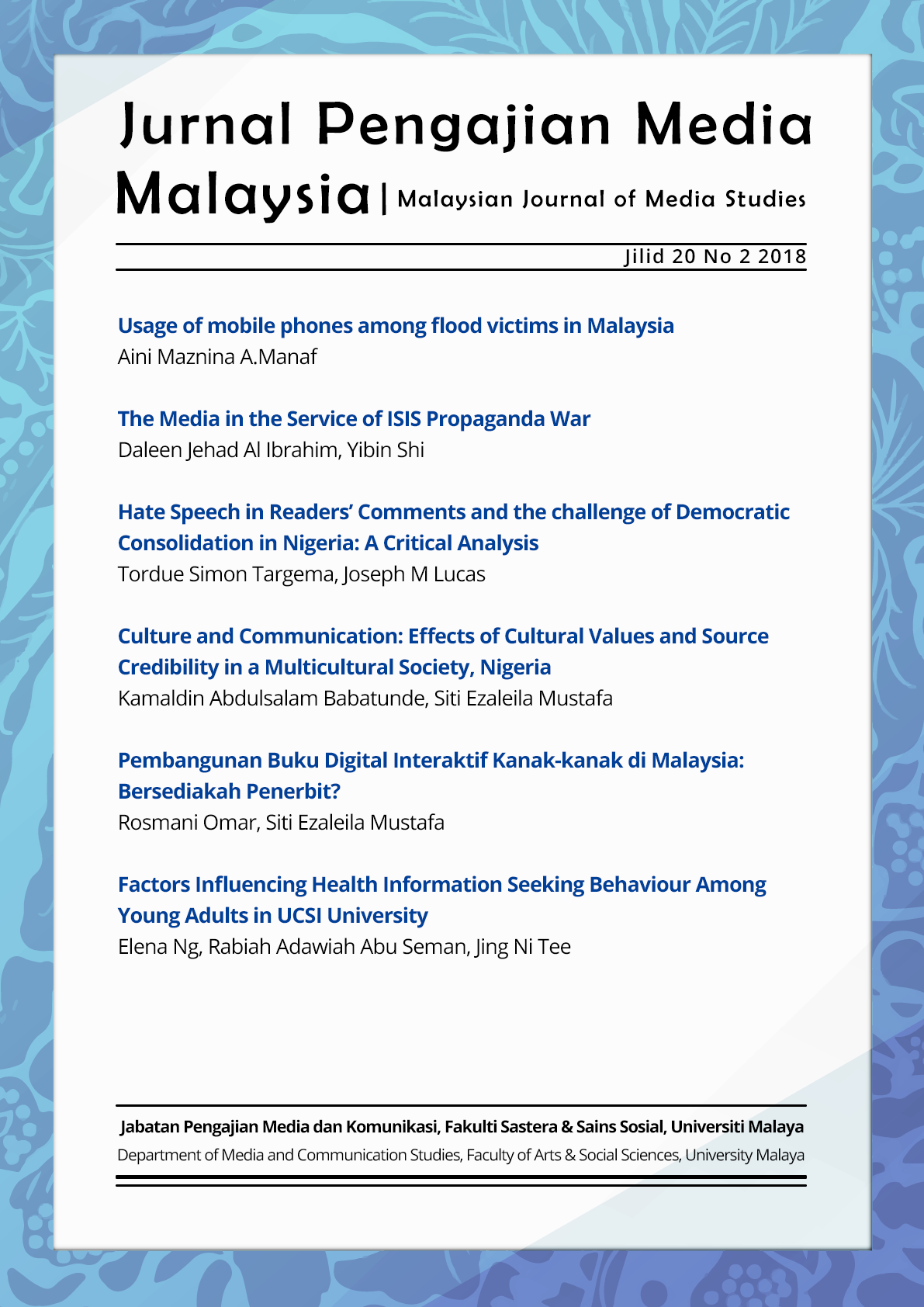Hate Speech in Readers’ Comments and the challenge of Democratic Consolidation in Nigeria: A Critical Analysis
Main Article Content
Abstract
Hate speech is among the most significant communication issues that preoccupy the agenda of relevant governmental agencies and media analysts in contemporary Nigeria. It is an unfortunate phenomenon that manifests in the public sphere, and is fast threatening the fragile democracy which the country is struggling to consolidate. Against this backdrop, this study investigates the nature of readers’ comments on online news sites in the country, their place within the context of hate speech rhetoric, and their implication on democratic consolidation in the country. Hinged on the Social Responsibility Theory, the study employs two research methods- Critical Discourse Analysis (CDA) and content analysis to investigate the manifestation of hate speech in online readers’ comments. Population of the study comprises 2,530 comments, generated from ten stories on prominent online news platforms in the country. From these, a sample of 250 comments (10% of the population) has been selected systematically for closer examination. Findings reveal that, although quantitatively, positive comments dominate the study population (comprising 60% while negative comments account for the remaining 40%), qualitatively, the trend of discussion is disturbing, as commentators employ the use of hate language, verbal assault, name calling, insults and derogatory words to describe subjects. To this end, the study concludes that readers need to exhibit a high sense of responsibility in the course of interaction on the online comments platforms. Where such responsibility is not self-enforced by commentators, news platforms should remove comments that contain venomous hate language in the interest of national unity, democracy and development.
Downloads
Article Details

This work is licensed under a Creative Commons Attribution 4.0 International License.
